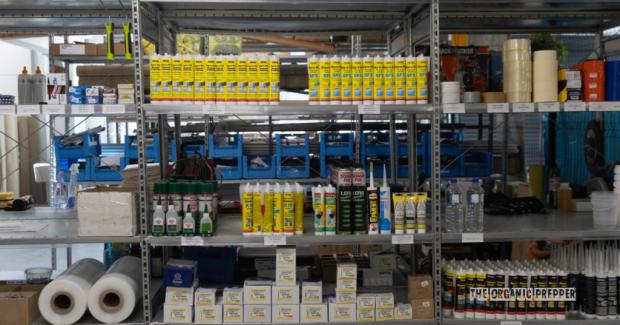
Breaking News
 After Trump Meeting, Slovak PM Fico Says 'EU Is Not Taken Seriously' By World Leaders
After Trump Meeting, Slovak PM Fico Says 'EU Is Not Taken Seriously' By World Leaders
 US NatGas Poised For Biggest Weekly Spike On Record As "Blizzard Of '96" Fears Resurfa
US NatGas Poised For Biggest Weekly Spike On Record As "Blizzard Of '96" Fears Resurfa
 Police Use Tear Gas, Stun Grenades Against Farmers Protesting Mercosur Trade Agreement At EU...
Police Use Tear Gas, Stun Grenades Against Farmers Protesting Mercosur Trade Agreement At EU...
 Supreme Court Seems Skeptical Over Lisa Cook Firing
Supreme Court Seems Skeptical Over Lisa Cook Firing
Top Tech News
 The day of the tactical laser weapon arrives
The day of the tactical laser weapon arrives
 'ELITE': The Palantir App ICE Uses to Find Neighborhoods to Raid
'ELITE': The Palantir App ICE Uses to Find Neighborhoods to Raid
 Solar Just Took a Huge Leap Forward!- CallSun 215 Anti Shade Panel
Solar Just Took a Huge Leap Forward!- CallSun 215 Anti Shade Panel
 XAI Grok 4.20 and OpenAI GPT 5.2 Are Solving Significant Previously Unsolved Math Proofs
XAI Grok 4.20 and OpenAI GPT 5.2 Are Solving Significant Previously Unsolved Math Proofs
 Watch: World's fastest drone hits 408 mph to reclaim speed record
Watch: World's fastest drone hits 408 mph to reclaim speed record
 Ukrainian robot soldier holds off Russian forces by itself in six-week battle
Ukrainian robot soldier holds off Russian forces by itself in six-week battle
 NASA announces strongest evidence yet for ancient life on Mars
NASA announces strongest evidence yet for ancient life on Mars
 Caltech has successfully demonstrated wireless energy transfer...
Caltech has successfully demonstrated wireless energy transfer...
 The TZLA Plasma Files: The Secret Health Sovereignty Tech That Uncle Trump And The CIA Tried To Bury
The TZLA Plasma Files: The Secret Health Sovereignty Tech That Uncle Trump And The CIA Tried To Bury
The Importance of Glue and Adhesives in Your Stockpile

Dear readers, by now, I believe we could fill whole books with the things we think are granted.
The multitude of products in our daily lives is made possible by a complex system of interconnected industries. Notably, glues, adhesives, and sealants serve as essential materials for countless applications. All of us DIY people know it.
It's widely understood that, in a worst-case scenario occurring within the next ten years, or possibly sooner, based on what I saw last year, current stockpiles will be depleted rapidly.
The facilities required to produce these items are incredibly complex, relying on an extensive network of interconnected sub-branches within the petrochemical industry. While returning to traditional methods holds appeal for those who experienced the craftsmanship of hand-made boots in the 1960s, 1970s, or even the 1980s, modern industry, much of it now based overseas, has taken over these specialized areas…with the known impacts on the price (and the quality). Consequently, should future manufacturing lines face significant disruption due to a major global event, such as a potential extended conflict, we would find ourselves woefully unprepared to bind even the simplest objects. The ready availability of glues and sealants, a convenience we currently take for granted, would become nothing but a forgotten luxury.
Scarcity shows up in unexpected places.
Mind you, the inspiration behind advocating for this article comes from my personal experiences with scarcity in Venezuela over the past several years. This isn't just a theoretical concern; it mirrors the hardships we faced once access to essential items became limited or disappeared entirely.

 Nano Nuclear Enters The Asian Market
Nano Nuclear Enters The Asian Market


